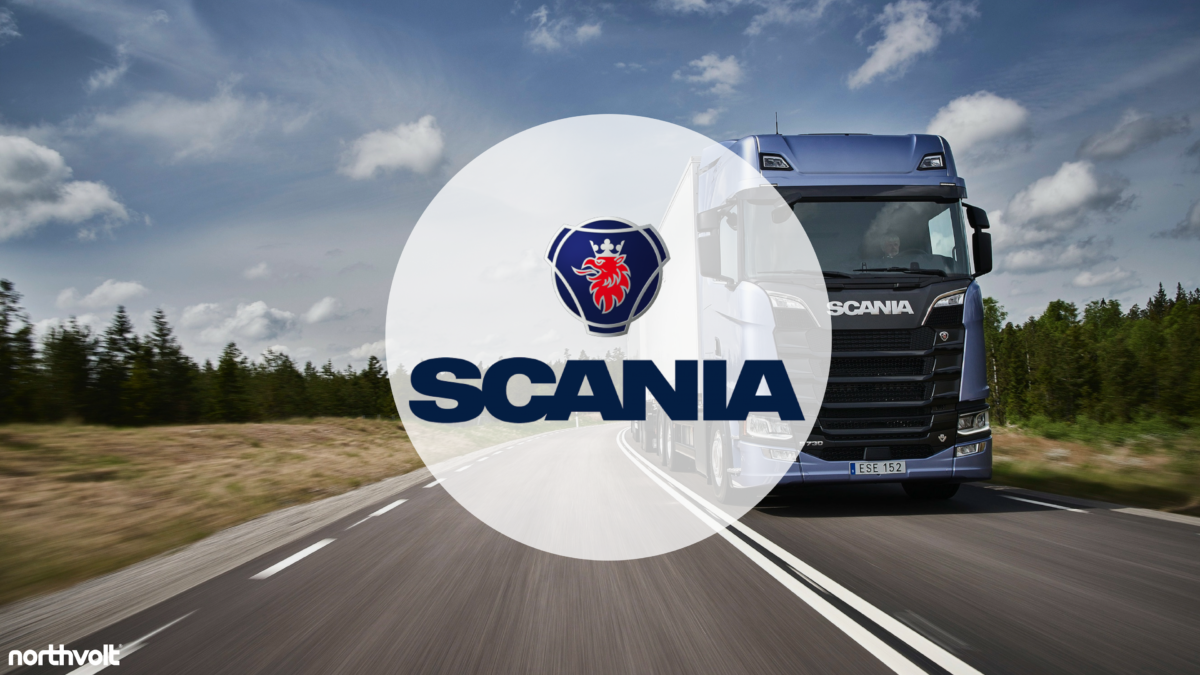Spotlight on Electrification Pioneers: Scania
28 August, 2018
We talked to Nils-Gunnar Vågstedt, Chief Engineer Electromobility Powertrain Development at Scania – the Swedish global company selling trucks, buses, and services in 100 countries – about the challenges electric transportation has to face, and the partnership with Northvolt.

What do you see on the horizon for electrification?
In the future, electrification for sure will be the most competitive way of transportation. The economics are the main driver for the industry of transportation and one of the reasons electrification is happening. And of course, the second reason is the well-being of humanity, of the world.
However, if we look closer into the horizon, we see that electrification still has many challenges to face in order to speed up its transition, even if the economic factors will be there within some years. If we want to accelerate the speed of the transition, we need to work with all different kinds of sustainable fuels, reduce the fossil energy use and increase the energy efficiency.
What is Scania’s approach to sustainable transportation?
We see a significant number of different tools in this toolbox, and we currently have a lot of competitive different products in place already. When it comes to renewable fuels, for instance, we have HVO, FAME, biogas, and also ethanol.
Hybridization, the reduction of energy use and the increase of energy efficiency is what we see coming in the near future for electrification. Our projects in these terms are focusing on hybrids, plug-in hybrids, and of course in the long run also full electric vehicles, like battery operated and by fuel cells. Even for the longest distances.
What do you think are the most significant challenges the industry is facing in Europe? And what is needed to overcome them?
Using less energy and using energy from good energy sources is a must. We need an energy production that is renewable, that comes from solar, wind and hydropower. There is not much sustainable energy production today, compared to what is needed. One of the main challenges we have to face is to increase the speed of its production plus push for the transition away from fossil and other non-sustainable energy sources, and this needs to be done at least on a European scale. It means increasing the solar parks, increasing the number of wind farms, and finding a way of utilizing hydropower better and more.
The second challenge we are facing is better charging infrastructures. It’s not much about the charging technology itself, it’s more about the ability to deliver the peak power from the grid when we need it. If we look at the electric grid as it is today in Europe, it’s evident that it absolutely cannot support a large-scale transition to EVs when it comes to heavy transportation, like long haulers.
You can overcome some of these challenges by making peak shaving with batteries, but the transition to EVs won’t happen very rapidly if we don’t start to do massive work on the grid. And this leads us to the final challenge: batteries.
The battery development looks extremely promising. We believe that the development of more cost-efficient, sustainable batteries is vital to boost the market growth of heavy electric vehicles, like trucks and buses. We need batteries with a longer lifespan, that can store more energy, and that can support the different electric powertrains required for different transport assignments.
We also see a challenge in the development of batteries. We need to use the minerals in a more efficient way, and we need to push society into not accepting mining from conflict zones with no fair labor conditions. We also need to make sure that the production of batteries, from the sourcing of raw material to the recycling of used cells, is sustainable.
What kind of impact do you think Scania’s partnership with Northvolt will have in the takeoff of electrified heavy vehicles?
I think it will have an enormous impact. Maybe, from our perspective, one of the most significant impacts. At Northvolt Labs, we will establish a team of experts with Northvolt to work together on the development and commercialization of battery cells optimized to power commercial heavy-duty vehicles.
Working with Northvolt is one of the different pieces in the jigsaw puzzle of the future. With this type of partnerships, we will be able to discuss and put demands on how batteries are produced, what kind of energy is used, where they are produced – we don’t want to transport batteries all over the place, we want them produced very close to where they are needed. And also, together, I think we will be able to put demands on the way minerals are extracted to achieve fair mining.
That’s why I think a collaboration with Northvolt is essential to shift into the right perspectives, like energy use and mining.
Scania recently published the white-paper Achieving fossil-free commercial transport by 2050*.* What are the main findings of your study? Will a fossil-free commercial transport be a reality by 2050?
Our study shows that if we do the right things at the right timing, we can shift to a fossil-free commercial transport by 2050.
If we increase the production and use of sustainable energy, if we improve our charging infrastructures, if we have great battery technology, it is absolutely possible. But one of the most important findings of our white-paper is that we can’t do it by ourselves, we need to partner up.
Electrification is a great challenge that we need to face together to make it happen. We need to work together because there is not just one partner that has all the answers to this challenge. We will get the answers together.
If we can arrange these collaborations, if we drive the development of right technologies, and if there are governances that regulate the energy production and the national grids, it is will be possible to make it happen. Definitely!